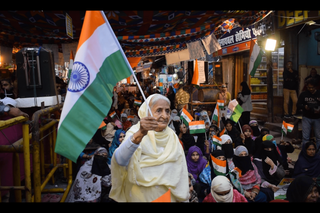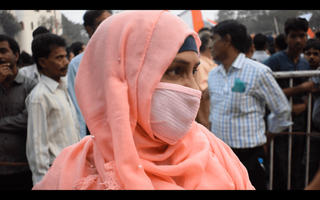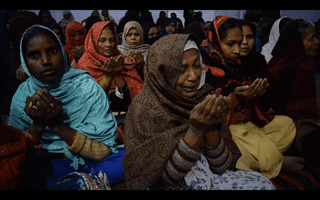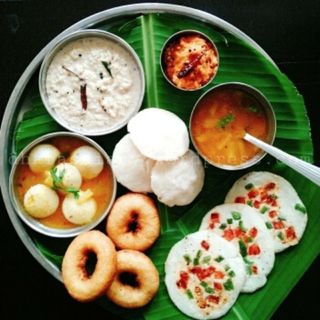
How Being at the Frontlines of Protest Is Taking a Toll on Women’s Health
“The country’s future is on the ventilator, I want to save that first,” said a kidney transplant patient.

Asmat Jamil is ill. The surgeon who conducted her kidney transplant has strictly advised her not to leave home or she could catch a fatal infection. But for the past three weeks, the 45-year-old homemaker has been out. “I just cannot sit at home,” she says. “The country’s future is on the ventilator and I want to save that first.”
Jamil has been at the forefront of a protest at Park Circus Maidan in Kolkata, shouting slogans and delivering speeches to thousands who have gathered against the Citizenship Amendment Act (CAA) and the proposed National Register of Citizens (NRC), which many see as ominous, particularly for the country’s Muslims.
All that protects Jamil from the “dangerous” dust at Park Circus is a pollution mask. But she says saving the country is more important than caring for her own life.
Ever since the Narendra Modi-led government announced a countrywide NRC and the CAA came into force in the Parliament, women have been at the forefront of the protests to push for a rollback. While Jamil continues to lead the fight at Park Circus, thousands of other women have gathered elsewhere — across the country, from Delhi to Karnataka, from Bihar to West Bengal.
Inspired by the 24*7 sit-in at Delhi’s Shaheen Bagh, which has now become the face of the anti-CAA/NRC movement, these gatherings have been going on around the clock. Unmindful of the long hours, women at these gatherings stay busy singing songs of freedom, occasionally punctuated with enthusiastic sloganeering. At times, they apply mehndi on each others’ palms, choosing to write “No CAA-No NRC” with it, over traditional designs, in order to keep busy and ease stress.
In the second video, The Swaddle dissects the women-led anti-NRC-CAA movement across the nation — why women are out, what it took, and why it matters. Follow #womenforazaadi to see our multimedia series that explores how women are redefining resistance in India. pic.twitter.com/E2CWcW5eeP
These women rarely leave the protest site. If they ever do, for something important at home, they take turns and ensure the protest sites are not deserted. “This is a sacrifice we are making,” says 55-year-old Shafeequa Hassan who has been protesting at Park Circus Maidan for three weeks.
A bigger, yet invisible sacrifice, however, these women are making is their health – both physical and mental.

Asmat Jamil, a kidney transplant patient, has been protesting against her doctor’s advice, putting her life at risk. She says, “The country’s future is on the ventilator and I want to save that first.”
Image Courtesy: Shrishti Malhotra
‘They’ll kill me and my children’
Sehmat (name changed on request), a protester at Kolkata’s Park Circus, says she can no longer sleep at night. “Whenever I hear a loud bang, I feel like it’s the police coming to beat us up.”
Sehmat, a student, was present inside Delhi’s Jamia Millia Islamia University on December 15, when the police barged in, fired teargas and beat up students. Two hundred students were injured that day and at least 50 were detained overnight.
Ever since the Jamia protest, her mother says, Sehmat has been waking up in the middle of the night “shaking and sweating.”
“She doesn’t sleep alone anymore. I don’t remember the last time she got good, peaceful sleep and I don’t know how I will send her back to study again,” Sehmat’s mother, who is herself protesting at Park Circus, adds.
Related on The Swaddle:
All the Arguments You Need: to Convince People Protests Work
For others, like 82-year-old Salma Begum, the whole NRC affair has triggered horrific memories of the Partition when aged just 9, she saw her family being murdered.
“I always have a sinking feeling those days are going to come back. This time, they’ll kill me and my children. These thoughts don’t let me sleep,” she says.
According to studies, people who take part in social unrest or live in areas of conflict are likely to suffer from mental health problems such as anxiety and depression, even Post-Traumatic Stress Disorder. The women at the anti-CAA/NRC protest sites across the country may not be suffering from any of such issues yet, but that stress is affecting their health is evident.
“I’m perpetually restless. It has given me high blood pressure,” says Nilofer Shaikh, a 34-year-old homemaker and a regular protester in Patna’s Sabzibagh where 24/7 protests have been going on for about two weeks now. “I dream about being thrown out of the country or being killed almost every night,” she adds.
In many places such as Shaheen Bagh, the need to address health problems has been realized with doctors volunteering and working in shifts to treat people on the spot, but other places like Sabzibagh and Gaya’s Shantibagh are yet to catch up.
“Involuntarily, a lot of protesters who are also doctors are already helping out people in need,” says Nusrat Hassan, a 34-year-old school teacher and a part of the organizing team at Shantibagh. “But to set up a medical camp, we’re still figuring out logistics. It’s taking time but we should have one soon,” she adds.

82-year-old Salma Begum (center) feels she’s reliving the Partition. “I always have a sinking feeling those days are going to come back. This time, they’ll kill me and my children. These thoughts don’t let me sleep,” she says.
Image Courtesy: Shrishti Malhotra
‘Can’t leave my motherland’
The women protesters, however, are unfazed and all too willing to pay this price. Noor Jahan Begum, 55, a homemaker who suffers from a heart ailment, has skipped her dose of medicines for the past 23 days. She says the pills are available only at the hospital, but she did not go as it meant leaving the protest site.
“I cannot waste time seeking treatment,” she says.
Begum says she believes she is alive despite skipping the pills because “even Allah wants me to fight for my country first, myself later.”
Salima Syed, a 23-year-old school teacher at Shantibagh who suffers from a migraine problem so severe that she takes days to recover from an attack, says she has “not missed a single day of the protest”.
“People have shed blood for the country, I have just a headache,” she says.
At Sabzibagh, Faizan Ali says his 85-year-old mother, Asghari Khatoon, has been a regular at the protests despite her poor health. He says Khatoon can’t bear the cold yet comes out to protest and shout slogans of Azadi “because she doesn’t want to leave the country where her 110-year-old mother is buried.”
“My grown-up children have not left me. How do I leave my own mother?” Khatoon asks.
“And my motherland?”
Anubhuti Matta is an associate editor with The Swaddle. When not at work, she's busy pursuing kathak, reading books on and by women in the Middle East or making dresses out of Indian prints.
Related


Why What We Think Is a Filling Breakfast May Still Leave Us Hungry
